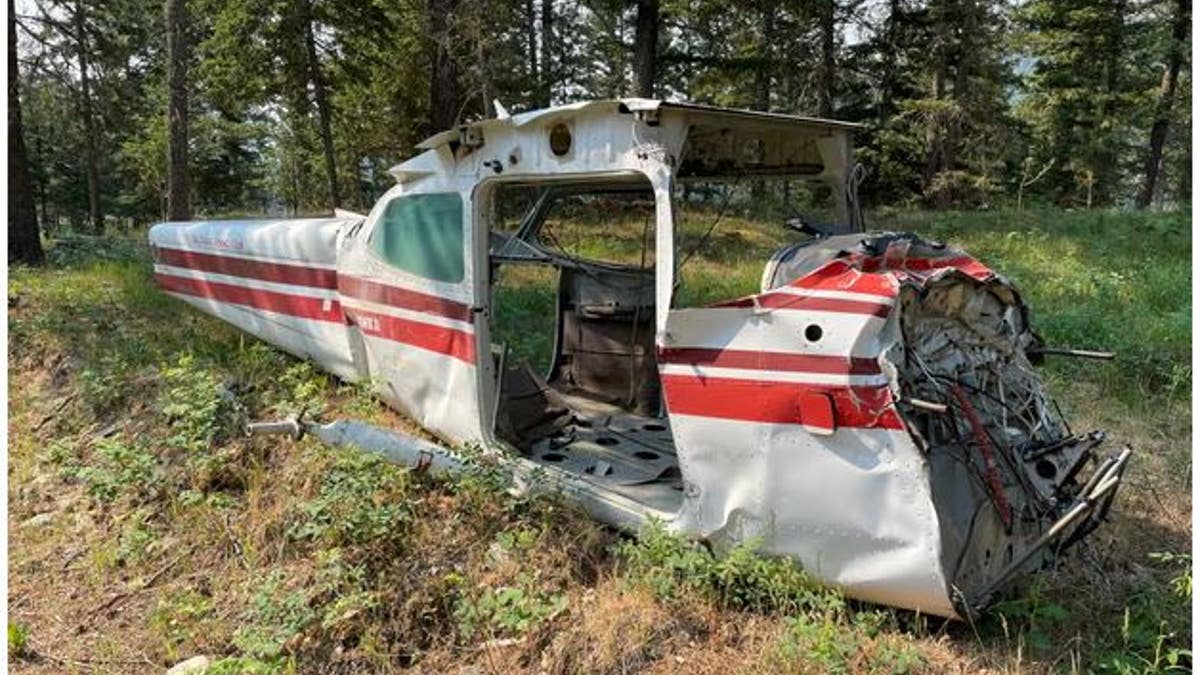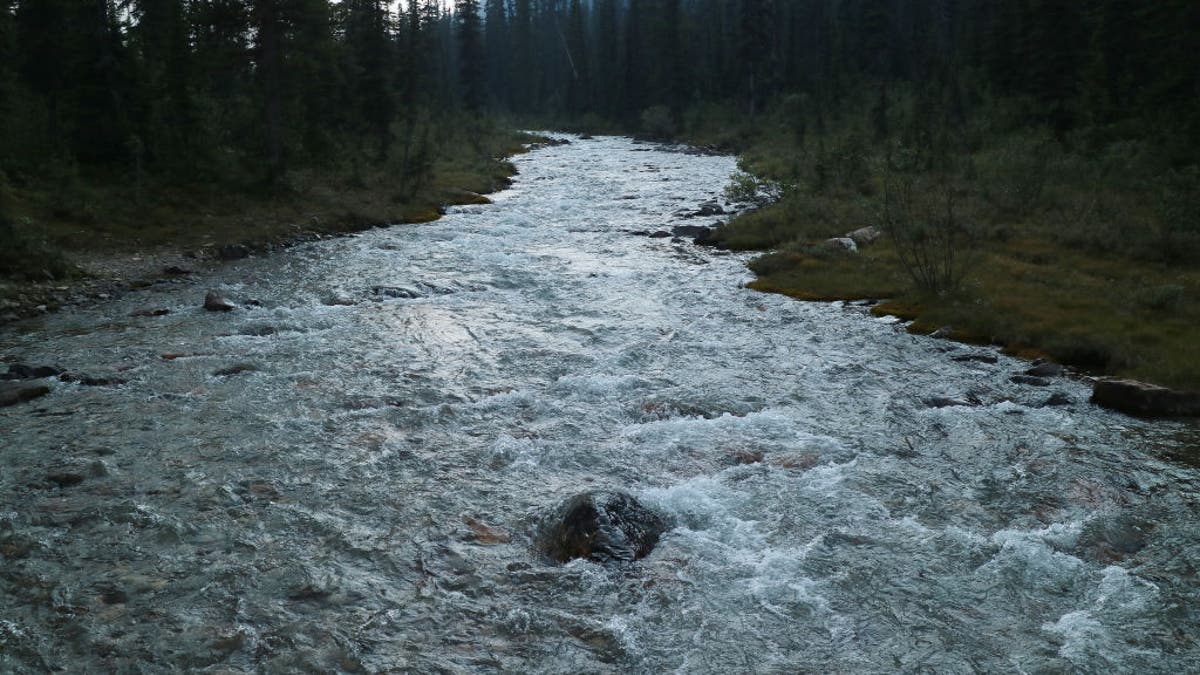A “decades-old” plane crash site that had stumped Canadian authorities turned out to be a prop used for training by members of Canada’s Civil Air Search and Rescue Association (Casara).
Canadian investigators were left stumped after a hunter in British Columbia stumbled upon the remains of an apparent plane crash and reported the findings to the Royal Canadian Mounted Police (RCMP), who investigated and determined the crash had likely happened more than two decades ago, according to a report from the Guardian.
Officers dispatched to the site of the mysterious crash in Canada’s vast wilderness found just the shell of a plane, with no signs of a motor, wings, doors, seats or bodies near the supposed crash site.

A plane in the Canadian backcountry was originally thought to be the site of a decades-old crash. (Civil Air Search and Rescue Association)
“Only the fuselage remained,” a police spokesman said of the site. “Additionally, no registration numbers were attached.”
A Transport Canada report published on the agency’s website noted that authorities said little was known about how the plane got there but theorized that it had been “destroyed,” likely by “collision with terrain.”
Meanwhile, a RCMP release seemed to add to the mystery, saying that it was likely the plane had been there “for decades” but that there were no reports of missing planes or passengers.
But it turned out there was a different explanation all together, with members of Casara coming forward to explain that they had actually placed the plane at the remote site a year ago for training purposes.

A view of the landscape on Aug. 20, 2018, in British Columbia, Canada. (Andrew Lichtenstein/Corbis via Getty Images)
The reason, the group explained, is because of the level of difficulty in responding to a plane crash in the Canadian wilderness. To ready themselves for that reality, the group often uses historic wrecks or scrapped planes for practice.
“We like to make it as real as possible for them: smoke, injured people. They love it and we get to treat it like a real downed aircraft,” Fred Carey, director general of British Columbia’s provincial air rescue service, said.
According to Carey, a team of people hauled the “carcass” of the Cessna plane up the mountain last summer with a logging skidder.
“Let’s say it was quite the chore,” Carey quipped.

Lake Peyto in British Columbia, Canada. (Planet One Images/Universal Images Group via Getty Images)
CLICK HERE TO GET THE FOX NEWS APP
Carey also said the group did not intentionally cause a mystery when it placed the wrecked aircraft, noting that both the local airport and the province’s main rescue coordination hub were notified about its placement.
“There are placards in the wreck and even a phone number to call,” he said. “I’m not sure what happened, maybe the placards wore off. But in this case, it doesn’t look like the authorities followed protocol.”

